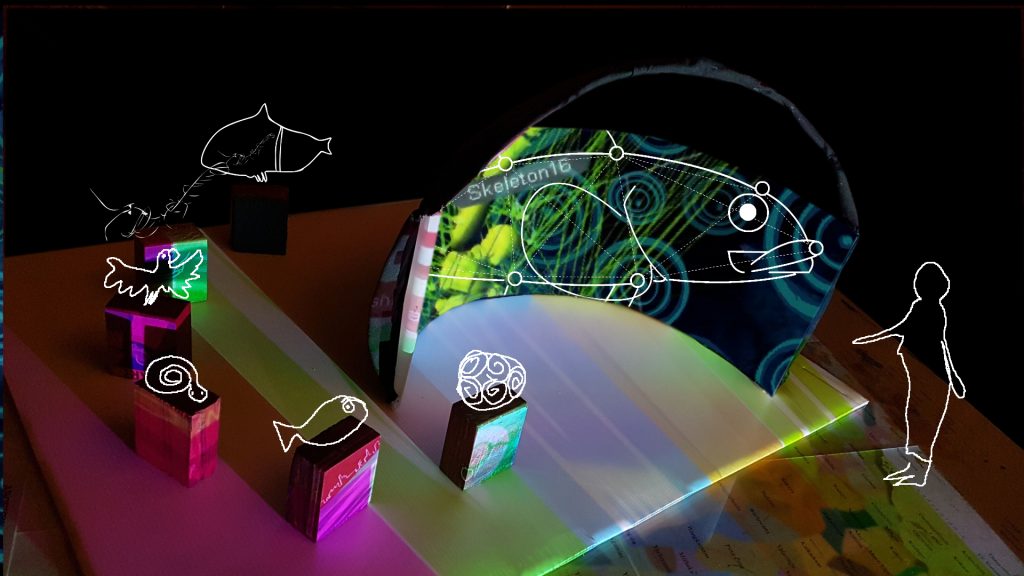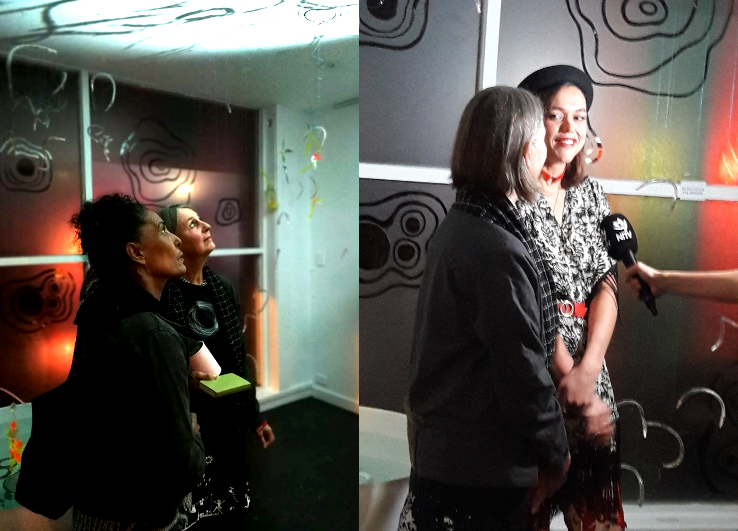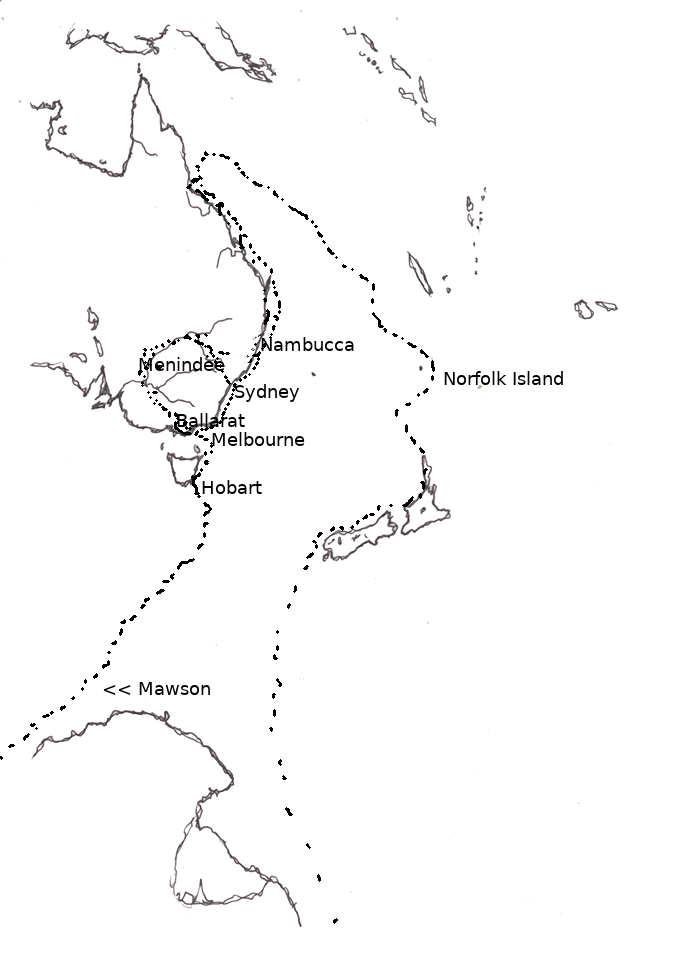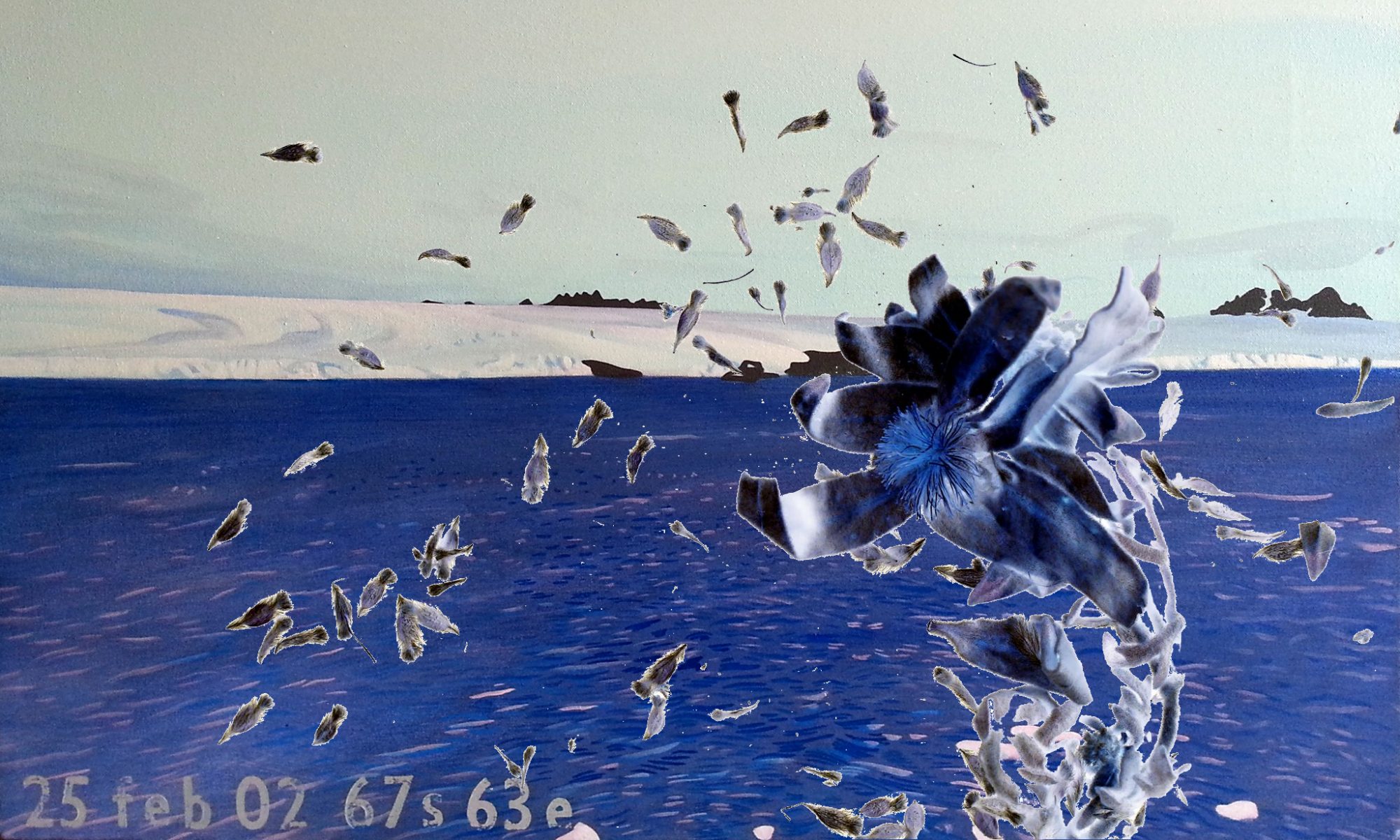The songlines are such an important part of our mental and spiritual structure.
They are lines of energy that run between places, animals and people.
Uncle Max Dulumunmun Harrison, 2009

WELCOME to the Journal for the travelling project, Living Data Seeding Treaties: Voices from the Southern Ocean. Here you can see how the project evolves as scientists, artists and other scholars share and grow knowledge to inspire more people to tell their own stories of relationship to the natural world, and to make their own treaties (agreements) for living and working well together. Due to Covid 19, our first plans stopped. The in 2024, Portrait of Community has evolved to continue the journey and its purpose.


Photos: Vikki Quill (L), Chriss Bull (R)

This map by Dan Bowles shows dotted lines that trace the path proposed for stage one of the ‘Seeding Treaties’ project. We accept that this path will change as the project evolves through interactions we may not have expected.
The project began in 2019 with the animation, Seeding Treaty, that was made to mark the International year of Indigenous languages, and the 50th anniversary of the Antarctic Treaty.
The project will culminate in 2022 to coincide with publication of the International Panel of Climate Change (IPPC) Report, and lead into the 2023 Global Stocktake to measure – and communicate – how countries are meeting the Paris Agreement targets.
A Living Data Library is being developed for sharing and growing stories that come from lands and waterways between Australia and Antarctica – stories told through the languages of art and scientific data. The art and data will give voice to ocean creatures and their relatives on land to reveal connections between Dreaming stories and Western science. Project co-creators and followers will be able to contribute to the library to illuminate a virtual cyclic journey between Antarctica and Australia that reflects diverse knowledge and experience of country. The cyclic journey will also open up possibilities for reimagining the world as a whole, and for understanding the Antarctic Treaty, and all treaties, as agreements people make for sustaining life well together.
Our original itinerary has changed since the Covid-19 pandemic, with our stories told more on virtual than physical country.
Animations, installations, performances and picture books are being made to give voice to ocean creatures and their relatives on land. An animated interactive web site will map and track the creatures’ explorations and invite responses. Algae, Krill, Fish, Snake, Bird and Whale will embark on an expedition from Antarctica to Australia. They will explore how they co-evolved through time and space with natural cycles of global climate change driven by Antarctic sea ice. They will reveal connections between health and wellbeing of individuals, communities and the planet.
Whale will lead and narrate a journey from the sea and then onto land, as in the Whale Dreaming stories of the Yuin and Gumbaynggirr peoples. That journey will reflect how Western scientists understand the evolution of the whale: The whale came from the sea, evolved on land into an almost wolf-like organism and eventually became amphibious and went back into the ocean to become the whales we see today. All mammals evolved from the ocean to be air-breathing organisms.
Walks on country, workshops and travelling shows will be key to developing the stories and for assessing their impacts on young people. The project has evolved from residencies this year (2019) with Barkindji artist Maddison Gibbs and Lisa Roberts at the Australian Antarctic Division (AAD), conversations at the Victorian College of the Arts (VCA) and University of Technology Sydney (UTS), and from Lisa’s involvement in the Ngadhuri-nya (To care for) study associated with the NSW Child Development Study.
The project will culminate in 2022 to coincide with publication of the International Panel of Climate Change (IPPC) Report, and lead into the 2023 Global Stocktake to measure – and communicate – how countries are meeting the Paris Agreement targets.
GUIDES
As project lead I acknowledge the risk of misrepresentation in the story telling, and so we are guided by Aboriginal Elders, Western scientists, Indigenous ecological scientists and others with Indigenous ecological knowledge (IEK) and sensitivities. As the project evolves we are guided by people directly and through their publications. Guides include: Uncle Max Dulumunmun Harrison, Dean Kelly, Bruce Pascoe, Aunty Fran Bodkin, Chels Marshall, William Gladstone, So Kawaguchi, Andrew Constable, Stephen Nichol, Carmel Bird, Megan Williams, Karin Osseydryver, Tyson Yunkaporta, Janet Hughes, Helen Milroy.
Dr Lisa Roberts 17 July 2019








CO-CREATORS






FOUNDATION WORK
SUPPORT
Donations to ‘Seeding Treaties: Voices from the Southern Ocean’ are administered through ‘Living Data Seeding Treaties Incorporated’.
Funds are used to bring together people to share and grow knowledge through relationships that respect Indigenous knowledge, the arts and the scientific method.
People come together on country and in workshops, and in physical and virtual exhibits and presentations.
For information on how you can support Living Data,
Email Lisa Roberts, Living Data program Leader.
